Engine oil is the lifeblood of your engine, but the choice of oils out there can be overwhelming. Luckily, we’ve done the research and picked five of the best motor oils you can buy.
We all know that engines need oil, that’s basic car maintenance knowledge, but not all oil is created equal. Considering how important oil is to your engine, you want to make sure you’re buying the best. While not all oil is suitable for every engine, there are key features that every engine will appreciate.
Generally speaking, oil has three main functions in looking after your engine:
- Lubrication – Oil performs this function by providing a barrier between the metallic surfaces inside your engine that allows each part to operate smoothly without generating heat and wear through metal-to-metal contact.
- Engine cleaning – The second function oil has is that it cleans your engine too. Modern oils contain various detergents that actually clean the internal surfaces of your engine while in use.
- Cooling – Third, oil is also an effective coolant. It does this by transferring the heat away from the component parts into the oil. This then cools as it flows around the engine, reducing engine temperatures.
Pick an oil that does all of this, and your engine will thank you. Below, you’ll find each of the motor oils featured will help keep your engine happy.
One final thing before we dive into our best engine oil in 2024 piece; it’s crucial to remember that every engine requires a specific type of engine oil. Be sure to refer to the manufacturer’s manual if you’re unsure which motor oil you need.
Best Engine Oil In 2024
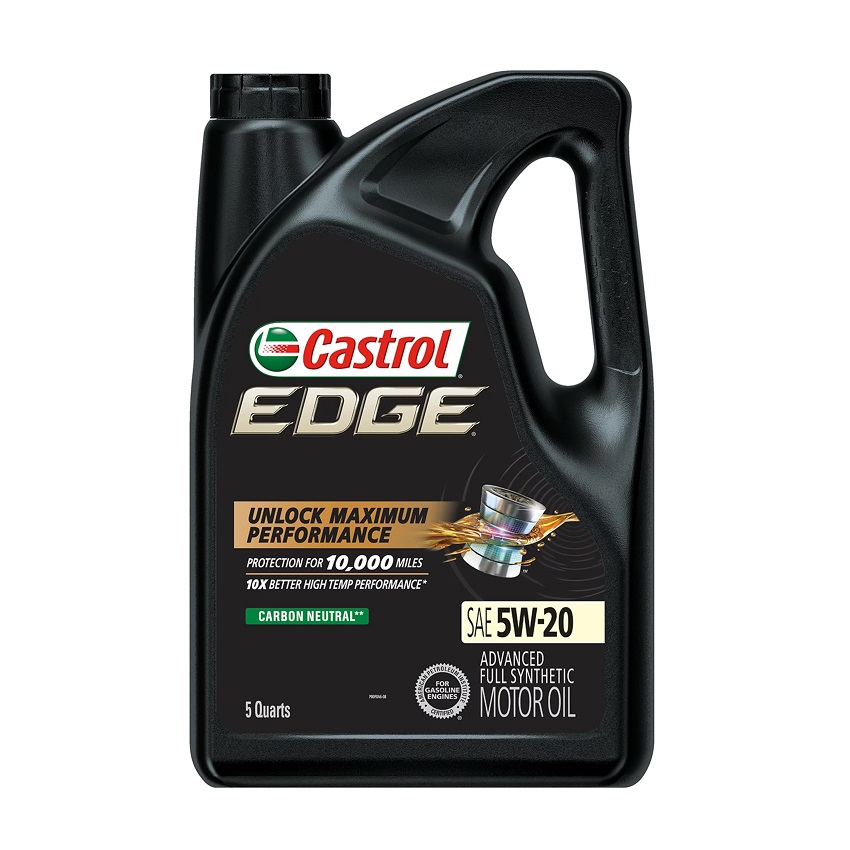
Castrol Edge
Castrol Edge is probably one of the first engine oils you think of when high-performance lubricants are mentioned. There are plenty of reasons why Edge is so highly rated, and you can’t go wrong with this oil. Castrol Edge has been designed to deliver maximum engine performance. It offers superior wear protection and superior cleaning. In tests against rival oils, it was three times stronger against viscosity breakdown than its nearest rival. It also offers 10 times better high-temperature performance, and six times better wear protection. With impressive specs, Castrol Edge is one of the best engine oils you can buy.
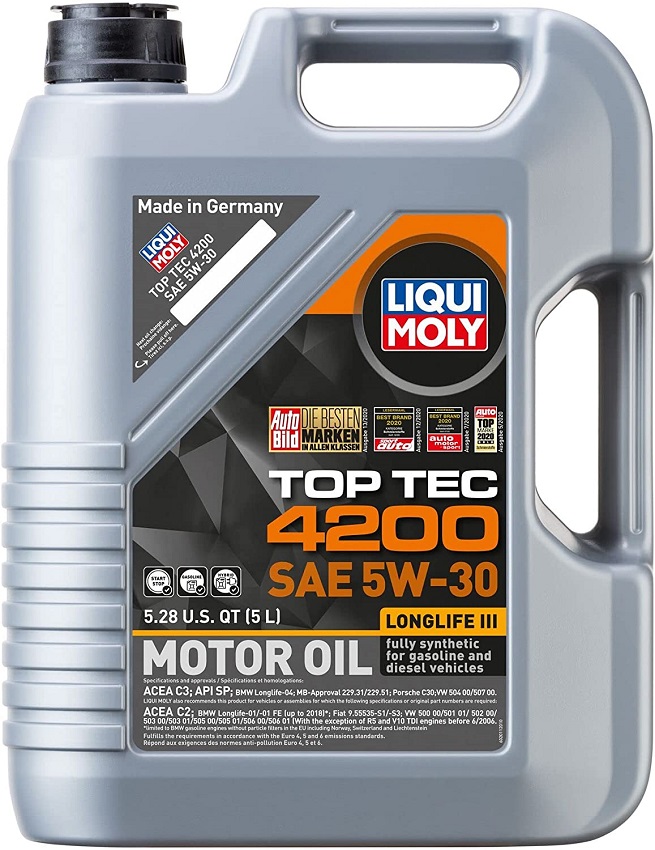
Liqui Moly Top Tec 4200
German engineering in oil form, Liqui Moly Top Tec is exactly as good as you’d expect. This high-tech, low-friction motor oil is based on synthetic technology. It delivers outstanding protection against wear, as well as reducing both oil and fuel consumption. It’s also been designed for fast oil penetration, ensuring maximum protection. Liqui Moly says you can go up to 30,000 miles between oil changes thanks to this engine oil’s level of protection. Liqui Moly Top Tec also prevents deposits from forming to help keep your engine in peak condition. Many people swear by Liqui Moly, and it’s easy to see why as this is a superb choice of motor oil.
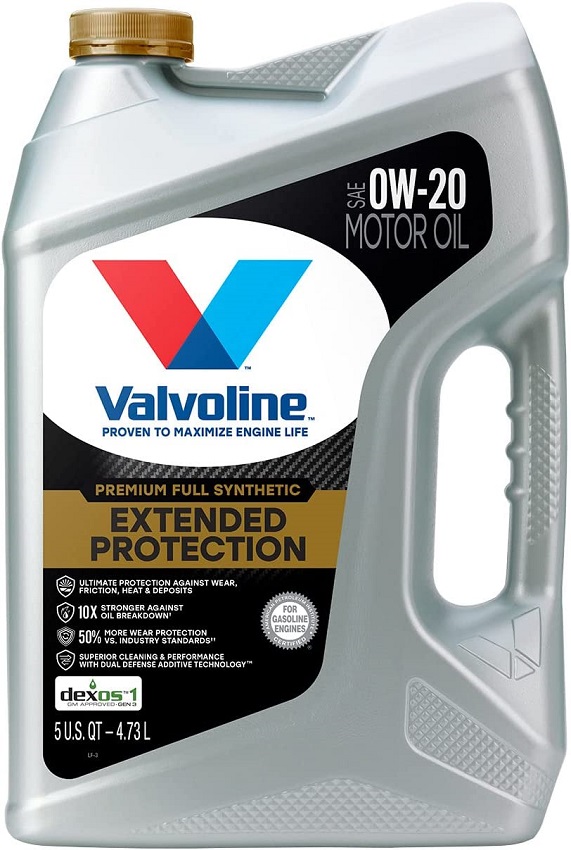
Valvoline Extended Protection
RRP: $28.32. Valvoline offers different motor oils in the UK, view them here.
As its name suggests, Valvoline Extended Protection has been designed to keep your engine safe. It protects against the main causes of engine breakdown: wear, friction, heat and deposits. In tests, it was 10 times stronger against oil breakdown versus industry standards. It also offers 50% better wear protection than the industry standard. It also delivers superior cleaning and performance, with Dual Defence Additive Technology to keep your engine in peak condition. There’s a lot to like about Valvoline Extended Protection, and it’s an excellent motor oil.
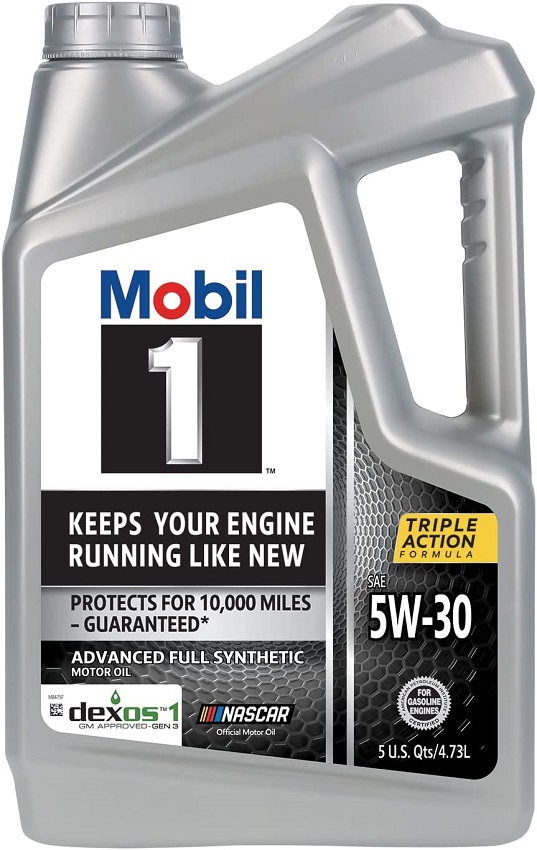
Mobil 1
Mobil 1 is another incredibly popular and well-known engine oil, and there are plenty of reasons why it’s a best-seller. It features Mobil 1’s Triple Action Formula, which has been designed to offer exceptional engine performance, protection, and cleanliness. It controls oxidation to prevent oil breakdown and maintains excellent viscosity to protect critical engine components. Mobil 1 also helps to protect against low-speed pre-ignition and timing chain wear. It will also help to keep your engine clean and help improve fuel economy. Mobil 1 helps to prevent deposits and sludge build-up and provides excellent high- and low-temperature protection. If you’re looking for an excellent all-round motor oil, you can’t go wrong with Mobil 1.
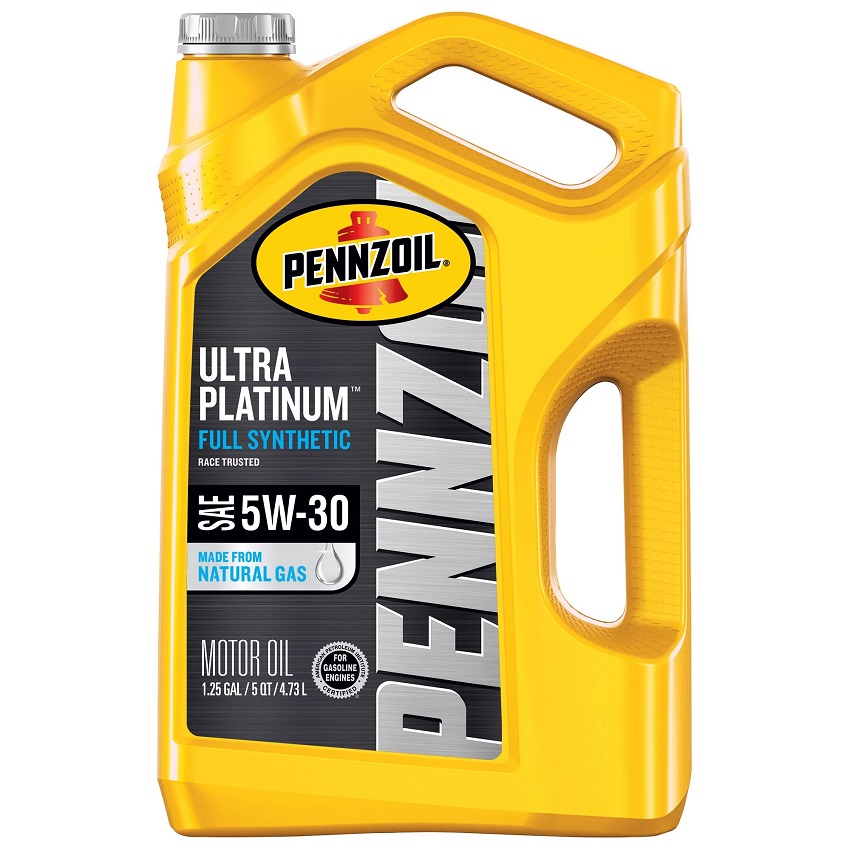
Pennzoil Ultra Platinum
RRP: $32.52. Buy in the UK in bulk.
Pennzoil Ultra Platinum doesn’t just offer excellent performance, it’s also carbon neutral. First of all, it’s made from natural gas, rather than crude, using Pennzoil’s patented gas-to-liquid PurePlus Technology. And it uses verified Nature Based Carbon Credits that offset the CO2 lifecycle emissions. In terms of performance, it doesn’t disappoint and gives your engine exactly what it needs. In tests, no other motor oil provides better wear protection, as well as offering superior sludge protection. It keeps pistons cleaner than required by industry standards and helps to protect against power loss. According to Pennzoil, it also improves fuel economy. Pennzoil Ultra Platinum is an engine oil that can do it all. It’s also kinder on the environment, which is always a bonus.
How the best engine oil products were recommended
While the engine oils we’ve recommended above haven’t undergone our rigorous testing, they are based off of my expertise and personal experience with both factory-spec vehicles as well as modified cars. I’ve used a number of different oils throughout my driving years and written guides to engine oils and other car maintenance topics as my role as Editor of Total BMW magazine.
How to choose the right engine oil for your car
When buying engine oil for your car, it’s important that you buy the right sort. That little alphanumeric code on the front of the bottle holds the key, so let’s break it down. The first number before the ‘W’ (which stands for Winter) indicates the oil’s viscosity in cold temperatures, whereby the lower the number the less viscous the oil is. Then, the following number indicates how viscous the oil is at running temperature. For example, 5W-30 oil is freer flowing than 5W-40 oil. This is important because different engines have different requirements. Sure, it’s good to have free flowing oil so that the engine remains well-lubricated, but you don’t want it to be so thin that it isn’t effectively protecting the internal engine components.
Usually your car’s owner’s handbook should tell you which oil it takes, though if that’s not the case, you can easily research it online. Keep in mind though that the requirements will often be a bit different if you’ve tuned your car’s engine.
Then there’s the issue of synthetic versus semi-synthetic or mineral. Generally speaking, fully synthetic oil is favored by most cars, and you can read more about that below. Be sure to also check out our guide on how to do an oil change so you can replace your oil yourself saving you money.
Engine Oil FAQs
What are the three types of engine oil?
Mineral Oil
A mineral oil is oil that came out of the ground and has then been refined to make it suitable for use in vehicles. It’s pretty basic stuff, but has the advantage of being cheap.
Semi-synthetic Oil
A semi-synthetic is a blend of mineral oil and synthetic. It’s generally cheaper than a synthetic and offers better protection than a mineral oil, but will not last as long or give as good protection as a fully synthetic.
Synthetic Oil
Synthetic oil isn’t quite as simple as you might think from the name. There are three types of synthetic oils. The first is hydrocracked mineral oil. This is where a mineral oil goes through a process called hydrocracking. This modifies and refines the oil enough that it is classed as synthetic. Hydrocracked oils are the synthetic component of a semi-synthetic oil. Second, there is PAO, or Polyalphaolefins. This is generally what people think of as synthetic oil, where the oil is produced by chemical reactions. Last, there are esters. Esters are the top level oil on the market and have advantages over normal oils. They cling to metal surfaces, so the interior of your engine, gearbox or diff is coated with oil at all times. This means instant cold-start protection. They also have greater friction reduction properties than normal oils, which can help engines run smoother.
Additionally, because esters make the oil more stable, ester-based oils are ideal for hard use applications.
In automotive oils, the esters are blended with PAO and/or hydrocracked oils to produce the final product. It would work out far too expensive to just use esters on their own. Blending the esters with other oils reduces the cost and produces a more stable oil.
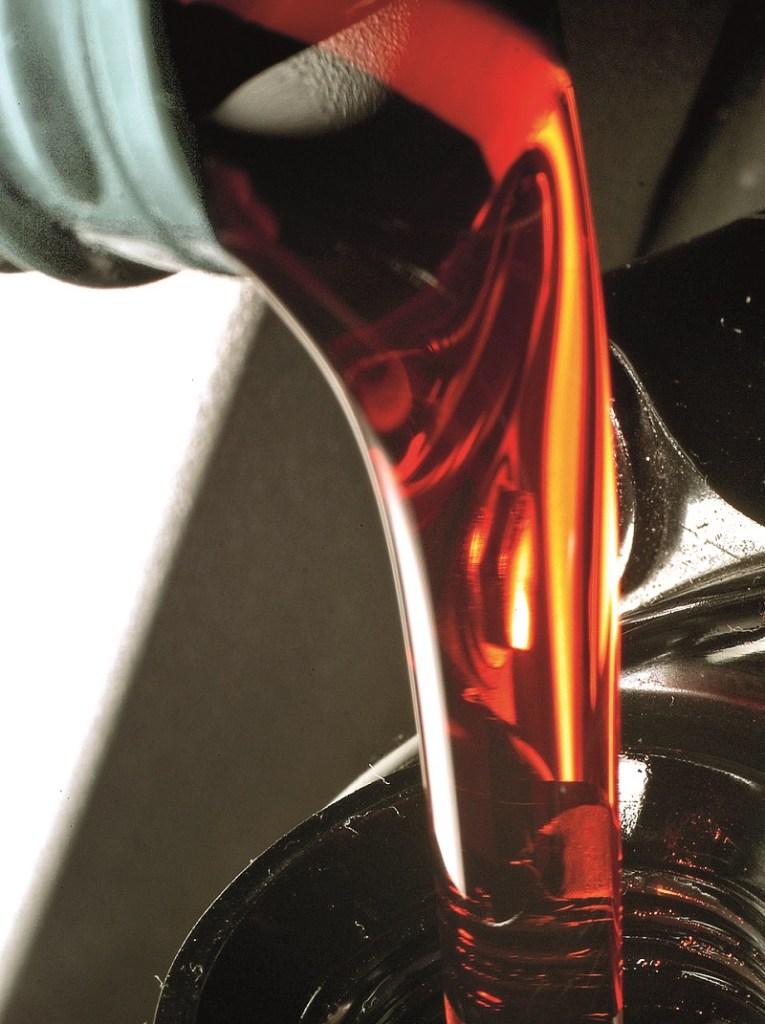
How thick should your engine oil be?
The first thing to consider when choosing an appropriate oil for your application is the viscosity.
When cold, you want the oil to flow well, so it gets around the engine quickly, improving cold-start protection. When hot, you don’t want the oil to be too thick as the flow rate is reduced. This lessens the protection and heat transfer capabilities of the oil.
But don’t just think it’s a case of the thinner the better. Too thin an oil will also lead to reduced surface-to-surface protection. As a result, it’s all about getting the right balance.
What does 5w-30 and other viscosity numbers mean on engine oil?
When you see the oil grade listed on the can, such as 5w-30, the first number relates to the cold flow viscosity (the w stands for winter) and is measured at 30C. The second number describes the viscosity at 100C. Although that number will be higher than the first number, the oil will always be thinner at 100C than 30C (the numbers are on a different scale). This is due the heat causing the oil to naturally thin. Those numbers are not exact points. They refer to a band that the viscosity falls into. As a result, you could have an oil categorized as 5w-30 that is almost the same viscosity as a 10w-30, or as a 0w-30 at the other end of the scale.
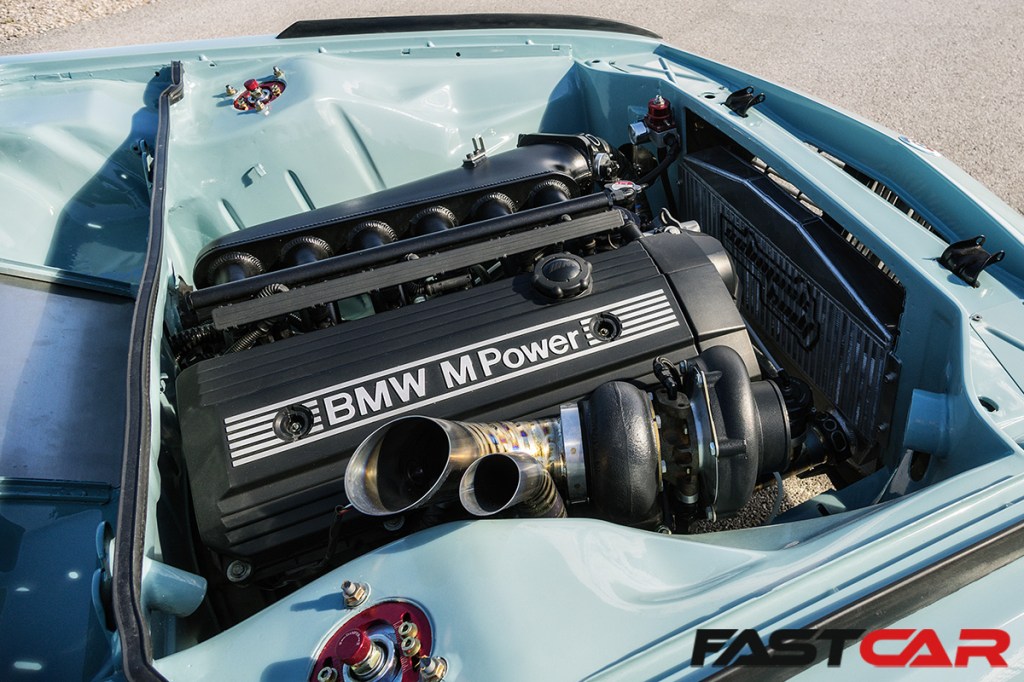
What oil does my tuned engine need?
Generally, what the manufacturer recommends is a sensible grade for a standard car that is used on the road. However, when you modify an engine or use it on track, the engine will run hotter than normal, leading to the oil thinning. That is when you need to consider using a thicker oil. In theory, it should run at a similar viscosity to the standard oil in a standard car. Depending on how far the car is modified, moving a grade or two thicker can be a sensible option.
Often grades like 10w-30, 10w-40 and 15w-40 are recommended as standard options. However, you can improve on those (in most cases) by using something thinner when cold, such as a 5w-30 in place of 10w-30, for example. This will help with cold-start protection.
But there are times when sticking to slightly thicker grades when cold makes sense. Forged builds, for example, often have larger tolerances than standard engines. Therefore, a thicker oil is likely to be the more sensible choice. Also, certain cars sound terrible when cold if too thin an oil is used. In those cases, a thicker oil could help.
Another thing to consider with viscosity is what the car is being used for. A daily driver that sees plenty of cold mornings needs cold-start protection more than a car used for endurance racing that experiences extreme high temperatures for long periods of time, for example.
Unless your car has one specific purpose (track use, short road trips, long journeys etc.) you’ll likely be looking at a compromise when it comes to the best grade for it.
What are engine oil additives?
Oils tend to be pretty clearly labelled as to what grade they are and if they are mineral, semi-synthetic or synthetic. However, the additive pack is far less obvious on the label. Additives in the oil are very important. They let the oil do its job properly. Here are some of the additives used in a modern oil:
- Detergents – these clean the engine to stop build-ups that could lead to a lack of protection.
- Anti-wear additives – these bond to the metal surfaces, providing a sacrificial layer. The best known is ZDDP.
- Anti-foaming agents – these help to keep the oil as a liquid rather than let it build into a foam. Foaming oil causes problems with the oil pump and can lead to oil starvation.
There are several others, such as; extreme pressure, anti-ageing, viscosity improvers, friction modifiers and so on.
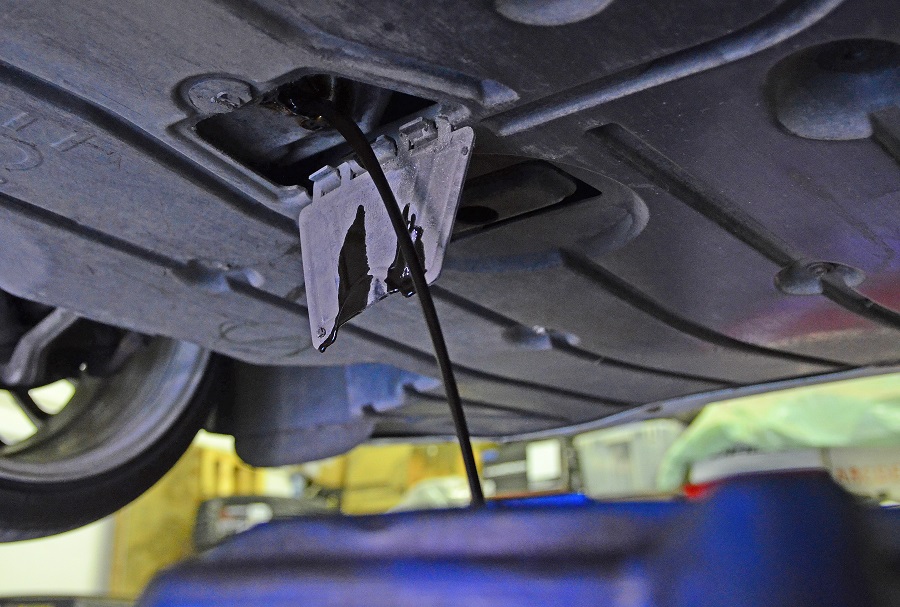
What is the difference between cheap and expensive engine oil?
If anyone tries to tell you that simply ‘oil is oil’, that really isn’t the case. You could have two cans of oil, both that are labelled as 5w-40 synthetics, but one could be a hydrocracked oil with a cheap/reduced additive package and the other could be a PAO/ester blend with a top-quality additive pack. There can be a huge difference in price between those oils. The difference might not be clear unless you have an idea of what all of the information on the label means.
Manufacturer approvals can also affect the price. Often to get an oil approved by a manufacturer, it can cost tens of thousands of dollars (we’ve even heard of some approvals costing over $100k). The cost of getting those has to be recouped by the oil. Some companies list their oils as ‘meeting the requirements of’ or ‘can be used in place of’ where certain manufacturer specifications are required. This saves the cost of getting the approval. However, you are relying on the oil company being honest about the oil doing what is says on the label.
Quality control also plays a large part in the price of an oil. The more it’s tested in production, the more it costs on the shelf. Some experts say they have heard of cheap oil that was tested where it was supposed to be a 5w-40 but turned out to be a 20w-40!
We’re not saying you need to pay a fortune for your oil. However, buying from reputable companies should provide you with added peace of mind that the oil will do the job you need it to.
When do I need to add more motor oil?
Generally, oil consumption is not something to worry about, unless it’s excessive. Certain engines often burn a drop of oil and suffer from no ill effects. Just keep an eye on the oil level and top up when necessary to keep it at the upper level. Forged engine builds also tend to use more oil due to the larger tolerances than standard engines. Oil consumption does vary from car to car, but the best thing to do is ask a specialist if you think you are using too much. A liter per 1000 miles is regarded by most manufacturers the normal limit, in most cases. Oil consumption can often be reduced by using a thicker oil, but too thick and engine protection is lost.
Love car shows? Did you know that Fast Car hosts events throughout the year, celebrating the very best of car culture at some of the most famous venues in the UK? Be sure to check out our Fast Car events page for more information on what’s coming up next.
The post Best Engine Oil In 2024 appeared first on Fast Car.

Write Reviews
Leave a Comment
No Comments & Reviews